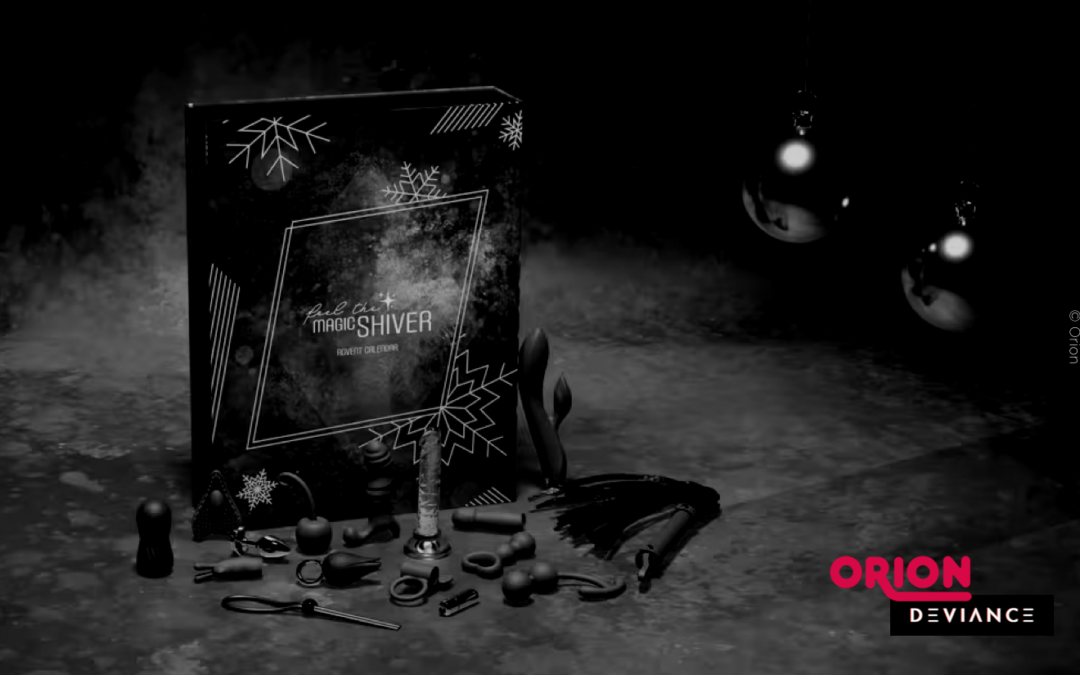Disclaimer: This article about so-called labels in BDSM is autobiographical and does not intend to explicitly ridicule, attack, or judge anyone. It revolves around subjective thoughts. The author wishes to remain anonymous.
What labels do you have? Are you into BDSM? Top or Bottom? Active or passive? Are you heterosexual, homosexual, bisexual, transsexual or pansexual? Are you actually together now? Is your relationship poly or open then? Ugh. A lot of questions. That’s also a bit of the downside of our extremely well-informed bubble, isn’t it? For everything, there are names, tags, labels, designations. And we’re all super tolerant and open, so it’s okay to ask, right? Or?
Theory and practice
Feelings, often a blessing and a curse at the same time, do not adhere to signs, labels, tags or plans. And even though the theory of “we are now in a poly relationship” sounds simple, in practice, it’s often a bit more complicated. For one, even with just two people, establishing a clear understanding from the start isn’t exactly easy. What exactly are we to each other now, who feels what, and what do we tell our friends and family when they once again want to know if there’s someone special? Adding one or more people to the mix makes it even more challenging. I’m not talking about communication outwardly here, because honestly, that’s entirely secondary. Even with three, four, in an open relationship, or any other configuration, people with thoughts and feelings are involved, and these aren’t always clearly defined. Yet, we feel the need to label this situation clearly, and within our kinky bubble, we embark on a quest for labels that could fit this relationship model.
We need a label now – right?
Let’s construct a hypothetical example. A couple, who could be both heterosexual and homosexual, has been together for a few years. Perhaps married, perhaps not, it doesn’t matter. They live together and plan to always be together, possibly even starting a family. Maybe children are already part of the picture, from previous relationships or their own.
Now another person joins the picture. They meet, get along well, there’s harmony and chemistry. They engage in a threesome, whether kinky or not, is secondary. Because it’s not often you find someone with whom there’s both human and sexual harmony, and who doesn’t mind that you’re already committed, the three quickly agree: they want to repeat the experience. At this point, one could speak of a relationship – but what kind of relationship, exactly?
Delving deeper into the world of polyamory quickly reveals: the variety is endless. Polyamorous or polygamous? Bigamy? Triad as a construct or simply a completely open relationship? Or monogamous with the option for friends with benefits? Monogamous, but also with others together? Swingers? What labels could fit? The possibilities are diverse, and there really seems to be a term for everything. It’s understandable that one would want to find the right term for oneself because how else are you supposed to answer all the questions mentioned above at the next opportunity?
People, norms and labels
Why are there norms, and why exactly is it important for us to classify, standardize, name, or define things? Germany, in particular, is famous for its penchant for standards and bureaucracy. The German population seems to love norms: According to DIN, there are about 34,500 DIN standards, and then there are also EC and ISO standards. It’s understandable then that society also likes to call things by their names. In the economy, standards are supposed to serve compatibility and quality assurance, for example, of components. With paper, we know at least from the first grade about DIN A5, A4, and A3.
But why do we want human norms and why labels for our relationships? Sociologists are deeply concerned with this and the outcome – in many different variations – is primarily one thing: Security. We believe that if something is defined, clearly named, has a defined structure, and follows certain rules, then it is also secure.
As if a name gives us a guarantee for our feelings.
For example, in Introduction to Sociology it says:
“In sociological terms, values can be understood as the conscious or unconscious ideas of the members of a society about what to aspire to and how to act” (Abels 2009b: 15). Norms regulate coexistence and make life predictable. They are more binding than values (Peuckert 2004: 213). Norms and values tell us how to act: after a performance, applause is given, and at the supermarket checkout, one stands at the back of the line. We are familiar with the dress codes, for example, at a funeral, on the beach, or in the office. This is by no means natural; it is people who have created these values and norms, and they are therefore culturally shaped.”
Theresa Fibich and Rudolf Richter, Faculty of Social Sciences, University of Vienna
Why this is difficult in reality
Back to our hypothetical trio. Let’s recap: a couple plus one more person. Chemistry fits. Sex fits. Sympathy fits. What doesn’t fit? On the one hand, we have all been socially conditioned, and most people over 30 in Germany still have this image of getting married, having children, owning a home, and so on as the ideal life in their minds. In the LGBTQ+ community, this may have been resolved earlier due to individual factors, but many people are still very much entrenched in this thought pattern and are attached to this plan.
So I as an individual have to find another individual with whom I am happy. So the couple may have several concerns: How are we supposed to explain to our friends that we are now several? Like parents, grandparents, aunts and uncles? If I never reveal the extent to which this person belongs to us, is that also very hurtful to this person? Does my primary partner think he or she is not enough for me if I clearly say I have multiple partners?
The individual who now complements or enriches the couple may also have pursued the plan of having their own partner by their side. What should this person say? “I can’t find another person on my own, so I’ve allowed myself to be with someone who already has a partner”? What about their own family or life planning? The desire to have and build such a basic structure for themselves instead of stepping into a ready-made nest? Is it a stigma or a blessing? Here again, there are these questions and phrases: “Why are you doing this to yourself?”, “playing second fiddle”, “third wheel”, and so on and so forth. Perhaps it’s just difficult to be open about it. So maybe it’s better to always bring only one partner from the couple relationship and introduce them as a partner? It’s all not so easy.
That’s why labels are overrated
And all of this emotional and social pressure is now weighing down on each of the three participants in this relationship. Who tells whom what, when and why or why not? Who loves whom and how much and who is now more or less part of this relationship? What should the goal be in the relationship, who is still allowed out or not, are you moving in together or is it just a sexy secret? But that’s not the core of the matter at all. The mere carousel of thoughts creates so much pressure and expectations that it can immediately spoil the fun of “Jeu à trois”.
The priority should be whether things are good the way they are right now. Sit back, relax, enjoy the moment and see what time brings. Who develops which feelings towards whom, whether what emerges is something beautiful and stable that makes everyone happy at the same time or manages to satisfy more needs than being alone or together. The real point is just how everyone in the construct is doing and not how society might find the construct. And yes, it helps many people if they can clearly state their relationship status. They feel safer, perhaps communicate more easily in the bubble, and are perhaps more at peace with themselves or their relationship. That’s good and a nice, positive effect. But the pressure to label our relationships makes the hurdles feel even higher, especially when unconventional and unique new connections arise. Maybe we should think carefully about whether it is really so important to us to stick a label on everything and ask about every detail and status. Maybe we’d better start taking it as it comes and enjoying it as it is.









